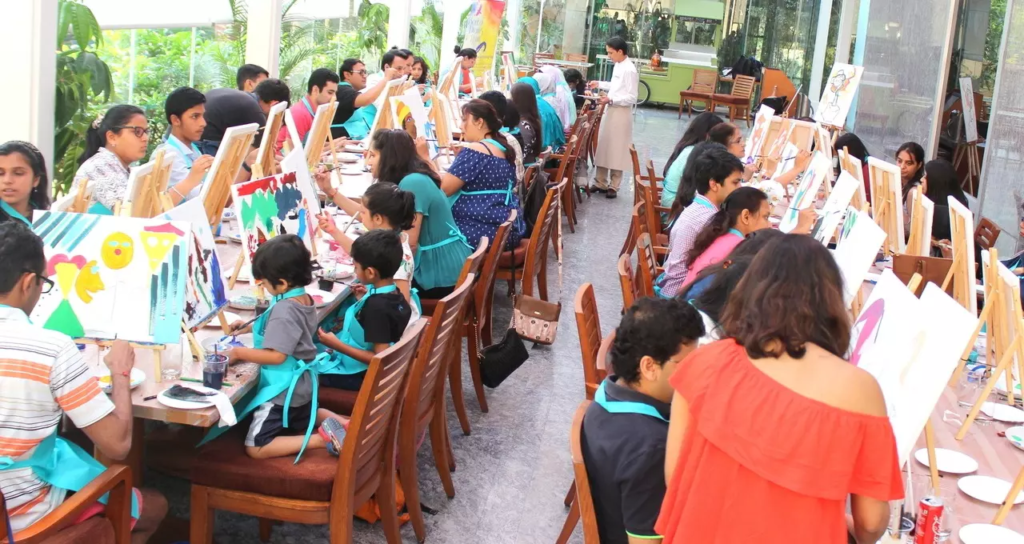Jump To Section
Quest for Happiness
Introducing the concept of happy people habits to you unveils the blueprint for a joyful and fulfilling life. These happy people habits, ingrained in the routines and lifestyles of content individuals like you, hold the key to fostering lasting happiness and inner contentment.

Happy people habits encompass a range of behaviours, attitudes, and practices that contribute to overall well-being. From daily rituals to mindset shifts, these habits are grounded in the belief that happiness is not merely a destination but a way of life.
Explore Further: Protect Your Energy: 7 Amazing Strategies to Mastering the Art of Emotional Boundaries
At the core of happy people habits lies the recognition that joy and contentment are cultivated through intentional actions and choices. By acknowledging and appreciating the blessings, big or small, you shift your focus from what you lack to what you have, fostering a sense of abundance and fulfilment.
Similarly, prioritizing self-care and well-being is a fundamental happy people habit. Taking time to nurture your physical, mental, and emotional health not only boosts your resilience but also enhances your overall happiness.
Furthermore, cultivating positive relationships and connections with others is a cornerstone of your happy people habits. Whether it’s spending quality time with loved ones, expressing kindness, or fostering a sense of community, strong relationships contribute significantly to your happiness and sense of belonging.
In essence, happy people habits underscore the idea that happiness is not dependent on external circumstances but rather on how you choose to approach life. By embracing these happy people habits and integrating them into your daily life, you can foster a deeper sense of joy, contentment, and fulfilment, ultimately leading to a happier and more meaningful existence.
Intention of This Blog
This blog aims to take you on a journey exploring various happy people habits practised around the world. Delving into different cultures and traditions, we aim to uncover the secrets of happiness and contentment as embraced by people from diverse backgrounds.
Through this exploration, you’ll discover that happiness is not a one-size-fits-all concept, but rather a tapestry woven from a myriad of happy people habits. From the bustling streets of Tokyo to the serene villages of Bhutan, each culture has its unique approach to fostering happiness and well-being.
Read More About Forgiveness: The Healing Power of Self-Forgiveness: 13 Forgiving Yourself Books to Transform Your Life
By delving into these happy people habits, you’ll gain insights into how people across the globe cultivate happiness in their lives. Whether it’s through mindfulness practices in India, cosy gatherings in Denmark, or a strong sense of community in Brazil, there’s much to learn from the wisdom of different cultures.
Moreover, this exploration serves as a reminder that happiness is not just a destination to reach, but a journey to be embraced. As you embark on this journey with us, you’ll uncover practical tips and strategies that you can incorporate into your own life to enhance your sense of joy and fulfilment.
Ultimately, our goal is to inspire you to cultivate a happier and more meaningful life by embracing the joyful habits of cultures around the world. Together, let’s embark on this exploration of happiness and discover the universal truths that unite us in our pursuit of a joyful existence.
Top 10 Happy People Habits
In this blog, you can anticipate delving into the essence of happiness through an exploration of the top 10 happy people habits These habits serve as guiding principles, offering valuable insights into how individuals cultivate joy and contentment in their lives.

We will educate you on the following top 10 happy people habits:
- Practising Gratitude: Cultivating a mindset of appreciation for life’s blessings.
- Nurturing Relationships: Investing time and energy into meaningful connections with loved ones.
- Mindfulness and Presence: Being fully engaged in the present moment and mindful of one’s thoughts and feelings.
- Pursuing Passions: Engaging in activities that bring joy, fulfillment, and a sense of purpose.
- Prioritizing Self-Care: Taking care of your physical, mental, and emotional well-being.
- Embracing Positivity: Choosing to focus on the positive aspects of life and maintaining an optimistic outlook.
- Living with Purpose: Setting meaningful goals and aligning your actions with your values and aspirations.
- Adopting a Growth Mindset: Embracing challenges as opportunities for learning and growth.
- Practising Kindness: Showing compassion and kindness towards oneself and others.
- Finding Balance: Striving for balance in all areas of life, including work, relationships, and leisure.
Through engaging narratives and real-life examples, this blog will illuminate the profound impact these habits can have on your happiness and quality of life. Whether you’re seeking inspiration for personal growth or simply curious about the secrets of happiness, this exploration will offer valuable insights and practical tips to apply in your own life.
Discover More on Gratitude: Power of Gratitude Awareness: 7 Outstanding Reasons To Thriving Your Gratitude Journal Practice
Furthermore, by showcasing the top 10 happy people habits, this blog aims to empower you to cultivate a happier and more fulfilling life. By incorporating these habits into your daily routine, you can unlock the potential for greater joy, resilience, and inner peace.
As you embark on this journey of discovery, we invite you to reflect on your habits and consider how you can integrate these principles into your life. Together, let’s explore the transformative power of happy people habits and embrace the path to a life filled with joy, purpose, and fulfilment.
The Power of Connection: Cultivating Community
In your pursuit of happiness, understanding the role of social connections is paramount. These connections serve as vital threads in the fabric of your life, weaving together moments of joy, support, and belonging.
Learn More about Success: Beyond Success: 5 Ways To Crafting an Amazing Meaningful Life Filled with Purpose
Your relationships with others play a crucial role in your overall happiness and well-being. Whether it’s with family, friends, or your community, these social connections provide a sense of belonging and support that is essential for your emotional health. Studies have consistently shown that people with strong social ties are happier, healthier, and live longer lives.

When you surround yourself with positive and supportive individuals, you create a nurturing environment that fosters happiness. Sharing laughter, experiences, and meaningful conversations with loved ones can uplift your spirits and brighten your outlook on life. Additionally, having a support system in place during challenging times can provide comfort and reassurance, helping you navigate through life’s ups and downs with greater resilience.
Furthermore, social connections offer opportunities for personal growth and self-discovery. Through interactions with others, you gain new perspectives, learn from different experiences, and develop a deeper understanding of yourself and the world around you. Whether it’s through meaningful conversations, shared activities, or collaborative projects, your relationships with others enrich your life in countless ways.
In today’s interconnected world, social connections can take many forms, from face-to-face interactions to virtual communities online. The key is to nurture and cultivate these connections, prioritizing quality over quantity. Invest time and effort into building and maintaining meaningful relationships, and you’ll reap the rewards of increased happiness and fulfilment in your life.
Ultimately, your social connections are a source of joy, support, and companionship on your journey towards happiness. By recognizing the importance of these relationships and nurturing them with care and intention, you can create a life filled with love, laughter, and meaningful connections.
Exploring Cultural Practices
Exploring cultural practices that prioritize community bonding, such as festivals, gatherings, and traditions, offers you a fascinating glimpse into the rich tapestry of human connection and belonging. Across the globe, communities come together to celebrate shared traditions, fostering a sense of unity, belonging, and joy.
Dive Deeper Into Self-Love: Self-Love Revolution: 5 Practical Steps for Cultivating Self-Love
Festivals are an integral part of many cultures, serving as vibrant celebrations of heritage, spirituality, and community. Whether it’s Diwali in India, Carnival in Brazil, or Oktoberfest in Germany, these festivals bring people together in joyous celebration, fostering a sense of camaraderie and belonging. Through music, dance, and ritual, participants forge connections with one another and with their cultural identity, creating lasting memories and strengthening community bonds.

Gatherings, both large and small, play a similar role in fostering community connections. From family dinners to neighbourhood block parties, these gatherings provide opportunities for people to come together, share experiences, and form meaningful relationships. Whether it’s swapping stories, sharing laughter, or simply enjoying each other’s company, these moments of connection help build a sense of belonging and support within the community.
Traditions also play a crucial role in prioritizing community bonding, providing a sense of continuity and shared identity across generations. Whether it’s celebrating holidays, observing religious rituals, or upholding cultural customs, traditions create a sense of belonging and connection to something larger than oneself. By participating in these traditions, you become part of a collective narrative that transcends individual differences and fosters a sense of unity and solidarity.
In today’s fast-paced world, cultural practices that prioritize community bonding are more important than ever. By coming together to celebrate festivals, gatherings, and traditions, you not only strengthen your connections with others but also reaffirm your sense of belonging and identity within your community. So, embrace these opportunities for connection, and watch as they enrich your life with joy, belonging, and a deep sense of community spirit.
Cultures like Bhutan, Denmark, Italy, Japan, Costa Rica, Finland, and India offer you a fascinating glimpse into the diverse ways in which different societies prioritize happiness and well-being. Each of these cultures has unique practices and traditions that contribute to a sense of joy, contentment, and community bonding.
In Bhutan, a small Himalayan kingdom known for its focus on Gross National Happiness (GNH), the concept of happiness is deeply ingrained in the national ethos. Bhutanese culture emphasizes the importance of spiritual well-being, environmental conservation, and community harmony. One notable example is the practice of “Tshechu,” a colourful annual festival featuring traditional dance, music, and religious rituals. These festivals bring communities together to celebrate their cultural heritage and strengthen social ties.

Denmark, often ranked among the world’s happiest countries, embraces the concept of “hygge,” which embodies a cosy and convivial way of life. Hygge refers to creating a warm and welcoming atmosphere, often through simple pleasures like enjoying a cup of coffee with friends, lighting candles, or spending time in nature. Danish society places a strong emphasis on social cohesion and work-life balance, with regular gatherings and communal meals fostering a sense of belonging and well-being.
Italy, famous for its rich cultural heritage and culinary traditions, also prioritizes community bonding and quality of life. In Italian culture, meals are more than just a source of sustenance—they are a social event that brings families and friends together. The tradition of the “passeggiata,” a leisurely evening stroll through the streets, is another example of how Italians prioritize connection and community. These rituals create opportunities for socializing, strengthening relationships, and enjoying the simple pleasures of life.
In India, a diverse and culturally rich country, community bonding is fostered through a myriad of traditions and practices. Festivals like Diwali, Holi, and Eid bring people together in joyous celebration, promoting unity and camaraderie among communities. Additionally, concepts like “seva” (selfless service) and “satsang” (spiritual gatherings) emphasize the importance of giving back to the community and connecting with others on a deeper level.

By exploring these examples, you gain insights into the diverse ways in which different cultures cultivate happiness and well-being. Whether through spiritual practices, cosy gatherings, or cultural traditions, these cultures offer valuable lessons on the importance of community bonding, connection, and enjoying life’s simple pleasures.
Gratitude and Mindfulness: Finding Joy In The Present
In your pursuit of happiness, understanding the significance of gratitude and mindfulness is paramount. These two practices act as powerful tools to cultivate a positive mindset, enhance well-being, and foster a deeper sense of contentment in your life.
Check Out: Crafting Your Awesome Narrative: Awakening the Power Within” – 6 Steps to Rewrite Your Story
Firstly, gratitude plays a crucial role in happiness by shifting your focus from what you lack to what you have. When you cultivate gratitude, you train your mind to notice and appreciate the abundance in your life, no matter how small. By regularly expressing gratitude for the blessings around you—whether it’s the warmth of the sun, the laughter of loved ones, or the simple pleasure of a good meal—you amplify feelings of joy and fulfilment.

Similarly, mindfulness is essential for happiness as it brings your attention to the present moment, free from judgment or attachment. When you practice mindfulness, you become fully immersed in your experiences, allowing you to savour life’s simple pleasures and find beauty in the ordinary. Whether it’s enjoying the taste of your morning coffee, feeling the sensation of your breath, or appreciating the beauty of nature, mindfulness helps you cultivate a deeper awareness and appreciation for the present moment.
Together, gratitude and mindfulness work synergistically to enhance your overall happiness and well-being. When you combine the practice of gratitude with mindfulness, you create a powerful foundation for living a more fulfilling life. By regularly acknowledging the blessings in your life and staying present in the moment, you cultivate a positive outlook, reduce stress, and increase feelings of happiness and contentment.
Incorporating gratitude and mindfulness into your daily routine can have profound effects on your happiness and overall quality of life. Whether through keeping a gratitude journal, practising meditation, or simply taking moments throughout the day to pause and appreciate the present, these practices empower you to live a life filled with joy, gratitude, and inner peace.
Exploring Mindfulness Practices
Exploring practices like gratitude journaling, mindfulness meditation, and nature immersion can offer you profound insights into cultivating happiness and well-being. These practices, found in various cultures like Japan, India, and Native American traditions, have stood the test of time as powerful tools for fostering inner peace and contentment.
For more insights: Radical Self-Love: 5 Amazing Tips to Embrace and Celebrate Yourself Unconditionally
In Japan, the practice of “shinrin-yoku,” or forest bathing, emphasizes the therapeutic benefits of immersing oneself in nature. Japanese culture recognizes the calming effect of spending time in natural environments, which can reduce stress, lower blood pressure, and boost mood. By simply being present in the forest and engaging your senses, you can experience a profound sense of connection and rejuvenation.

Similarly, in India, the practice of mindfulness meditation has been cultivated for thousands of years as a means of achieving inner peace and spiritual growth. Through techniques like “vipassana” or “pranayama,” practitioners learn to observe their thoughts and emotions without judgment, cultivating a deeper sense of self-awareness and equanimity. By regularly practising mindfulness meditation, you can develop a greater capacity to manage stress, enhance focus, and cultivate a sense of inner calm.

Native American traditions also offer valuable insights into practices that promote well-being, such as gratitude journaling. Many Native American cultures incorporate gratitude into their daily lives through rituals like prayer and ceremony, where individuals express thanks for the blessings of nature, community, and family. By keeping a gratitude journal and regularly acknowledging the abundance in your life, you can cultivate a positive mindset and deepen your sense of connection to the world around you.

By exploring these practices from cultures like Japan, India, and Native American traditions, you gain valuable tools for enhancing your happiness and well-being. Whether through spending time in nature, practising mindfulness meditation, or keeping a gratitude journal, these practices empower you to cultivate a deeper sense of inner peace, contentment, and connection with the world around you.
Pursuing Passions: Finding Purpose and Flow
Pursuing passions and finding purpose in life is integral to experiencing fulfillment and satisfaction. When you engage in activities that you are passionate about, you not only enjoy the process but also feel a sense of purpose and meaning. Your passions are like guiding lights, leading you towards experiences that align with your values and interests.
Read More About Self-Mastery: Unlocking Self-Mastery: 6 Audacious Strategies for Success
One of the key reasons why pursuing passions is important is that it brings joy and excitement into your life. When you are doing something you love, time seems to fly by, and you feel fully immersed in the present moment. This sense of flow not only boosts your mood but also enhances your overall well-being.

Moreover, pursuing passions allows you to express your authentic self. It allows you to tap into your creativity, talents, and unique strengths. Whether it’s painting, playing an instrument, writing, or pursuing a sport, engaging in activities that resonate with you fosters self-discovery and personal growth.
Finding purpose in life goes hand in hand with pursuing passions. When you have a sense of purpose, you feel motivated and driven to make a positive impact in the world. Your purpose gives you direction and clarity, guiding your decisions and actions towards meaningful goals.
For many people, finding purpose comes from contributing to something larger than themselves. It could be through volunteering, mentoring others, or pursuing a career that aligns with their values. When you feel like your efforts are making a difference, you experience a deep sense of fulfilment and satisfaction.
Ultimately, both pursuing passions and finding purpose in life are essential for leading a fulfilling and meaningful existence. By following your passions and aligning your actions with your values, you can create a life that is rich in joy, purpose, and fulfillment.
Cultural Practices
Exploring cultural practices that encourage leisure, creativity, and self-expression reveals the diverse ways in which different societies prioritize these aspects of life. Examples from cultures like Brazil, France, India, and Spain offer valuable insights into how leisure and creativity are integrated into daily life.
Check This Blog: Cultivate Your Best Version: 5 Proven Strategies for Success
In Brazil, the practice of “samba” represents a vibrant cultural expression that encourages both leisure and creativity. Samba, with its lively music and dance, is deeply ingrained in Brazilian culture and serves as a form of leisure activity for people of all ages. Whether it’s participating in samba schools during Carnival or dancing at local gatherings, Brazilians find joy and self-expression through this rhythmic art form.

France is renowned for its café culture, which promotes leisurely socializing and artistic expression. In cities like Paris, cafés serve as communal spaces where people gather to enjoy coffee, conversation, and creativity. From intellectuals discussing philosophy to artists sketching their surroundings, cafés provide an environment conducive to leisure and self-expression.

India’s cultural practices, such as yoga and traditional arts, also promote leisure and creativity. Yoga, with its emphasis on mindfulness and movement, offers individuals a way to relax, unwind, and explore their inner creativity. Additionally, traditional arts like painting, dance, and music provide opportunities for self-expression and leisure activities that are deeply rooted in Indian culture.

In Spain, the tradition of “fiestas” celebrates community, creativity, and leisure. From the colourful festivals of “La Tomatina” to the spirited flamenco performances, Spaniards embrace leisure as an essential part of life. These cultural practices not only foster creativity and self-expression but also strengthen social bonds and bring people together in joyful celebration.

By exploring cultural practices from Brazil, France, India, and Spain, we gain insights into the diverse ways in which leisure, creativity, and self-expression are valued and integrated into daily life. Whether through music and dance, café culture, yoga, or festive celebrations, these cultural practices enrich our lives and inspire us to embrace leisure, creativity, and self-expression in our unique ways.
Top 10 Happy People Habits
Happy people habits are the daily practices and behaviours that contribute to a sense of joy, contentment, and fulfilment in life. These happy people habits are not just random actions but intentional choices made by individuals who prioritize their well-being and happiness. Happy people understand the importance of taking care of themselves physically, mentally, and emotionally, and they incorporate happy people habits into their daily routines that support their overall happiness and well-being.
These happy people habits can vary widely from person to person, but there are common themes among those who consistently report feeling happy and fulfilled. They prioritize positive relationships, spending time with loved ones, and nurturing meaningful connections. They also make time for activities that bring them joy and fulfilment, whether it’s pursuing hobbies, spending time in nature, or practising gratitude and mindfulness.
Explore on Resilience: Unleash Your Inner Resilience: 5 Outstanding Keys To Face Adversity
Happy people often have a positive outlook on life, choosing to focus on the good in any situation and practising gratitude for the blessings in their lives. They set goals and work towards them, finding purpose and meaning in their pursuits. They also prioritize self-care, taking time to rest, recharge, and take care of their physical and mental health.
Ultimately, happy people habits are about living authentically, aligning actions with values, and choosing to cultivate happiness in everyday life. By incorporating these habits into their daily routine, happy people create a life that is fulfilling, meaningful, and filled with joy.
Practising gratitude daily:
Make it a habit to reflect on the things you’re thankful for each day. This could include anything from the support of loved ones to the beauty of nature or the small pleasures in life, like a warm cup of coffee or a good book. By regularly acknowledging and appreciating these blessings, you cultivate a positive outlook and shift your focus towards the abundance in your life.
Spending time with loved ones:
Whether it’s family, friends, or pets, spending quality time with loved ones strengthens your relationships and brings immense joy. Engage in activities together, have meaningful conversations, or simply enjoy each other’s company. These connections provide emotional support, reduce stress, and contribute to a sense of belonging and happiness.
Engaging in regular physical activity:
Exercise is essential for both physical and mental well-being. Find activities that you enjoy, whether it’s walking, running, dancing, or playing sports. Regular physical activity releases endorphins, which are natural mood lifters and reduce levels of stress hormones in the body. It also improves sleep, boosts self-esteem, and enhances overall energy levels and vitality.
Pursuing hobbies and interests:
Hobbies and interests provide an opportunity for creative expression and personal fulfilment. Whether it’s painting, gardening, cooking, or playing a musical instrument, engaging in activities that you enjoy helps you relax and unwind while also fostering a sense of accomplishment. These pursuits offer a break from daily stressors and allow you to explore new skills and interests, leading to personal growth and satisfaction.
Getting enough sleep:
Adequate sleep is crucial for physical and mental health. Aim for 7-9 hours of quality sleep each night to allow your body and mind to rest and rejuvenate. Create a relaxing bedtime routine, limit screen time before bed, and ensure your sleep environment is comfortable and conducive to rest. Quality sleep improves mood, cognitive function, and immune health, while also reducing the risk of chronic conditions like heart disease and obesity.
Discover on Success: Embracing Discomfort: 5 Wonderful Strategies to Fuel Personal Growth Beyond Your Comfort Zone
Expressing kindness and compassion:
Show kindness and empathy towards others through simple acts of generosity, understanding, and support. Whether it’s offering a listening ear to a friend in need, volunteering in your community, or performing random acts of kindness, expressing compassion not only brightens someone else’s day but also fills your heart with warmth and fulfilment.
Setting and achieving goals:
Identify specific, achievable goals that align with your values and aspirations. Break them down into smaller, manageable steps and create a plan to work towards them. Celebrate your progress and accomplishments along the way, and don’t be afraid to adjust your goals as needed. Setting and achieving goals gives you a sense of purpose and direction, boosting your confidence and motivation to pursue your dreams.
Cultivating a positive mindset:
Train your mind to focus on the positive aspects of life and practice gratitude daily. Challenge negative thoughts and replace them with affirming optimistic ones. Surround yourself with uplifting people and environments, and engage in activities that bring you joy and fulfilment. Cultivating a positive mindset not only enhances your overall well-being but also helps you navigate challenges with resilience and optimism.
Living in the present moment:
Practice mindfulness by being fully present in each moment, without judgment or distraction. Pay attention to your thoughts, feelings, and sensations as they arise, and let go of worries about the past or future. Engage in mindfulness practices such as meditation, deep breathing, or simply taking a moment to appreciate the beauty around you. Living in the present moment allows you to experience life fully and deeply, fostering a sense of peace and contentment.
Finding purpose and meaning in life:
Reflect on what gives your life meaning and fulfilment, and align your actions with your values and passions. Explore activities that bring you joy and make a positive impact on others and the world. Whether it’s through your career, relationships, hobbies, or volunteer work, finding purpose and meaning in life gives you a sense of direction and fulfilment that goes beyond material success.
Embracing joyful happiness habits is about consciously choosing actions and behaviours that cultivate happiness and well-being in your life. These happy people habits, when practised regularly, have the power to transform your outlook, mindset, and overall quality of life.
One of the key habits of happy individuals is practising gratitude. Taking time each day to express appreciation for the people, experiences, and blessings in your life can shift your focus from what’s lacking to what’s abundant, fostering a sense of contentment and fulfilment.
Another important habit is prioritizing self-care. This includes making time for activities that recharge and rejuvenate you, such as exercise, meditation, or spending time in nature. By taking care of your physical and mental health, you can better cope with stress and challenges, and approach life with a greater sense of resilience.
Happy people also tend to cultivate positive relationships and social connections. Spending time with loved ones, nurturing friendships, and engaging in meaningful conversations can provide a sense of belonging and support, which is essential for emotional well-being.
Engaging in activities that bring you joy and fulfilment is another important happiness habit. Whether it’s pursuing hobbies, learning new skills, or simply doing things that make you laugh, making time for things you enjoy can boost your mood and overall happiness.
Lastly, happy people often have a sense of purpose and meaning in their lives. They set goals, pursue their passions, and align their actions with their values. This sense of purpose gives life direction and meaning, contributing to a deeper sense of fulfilment and satisfaction.
By embracing these happy people habits and incorporating them into your daily life, you can create a life that is rich in happiness, fulfilment, and well-being.





Pingback: Unlocking the Mind-Body Connection: 6 Undeniable Strategies for Nurturing Mental Health for Improved Physical Well-Being - True Potential Quest
Pingback: Finding Purpose in Retirement: 7 Awesome Ways Building a New Chapter of Meaningful Living - True Potential Quest
Pingback: Living Without Regrets: 6 Empowering Strategies - True Potential Quest